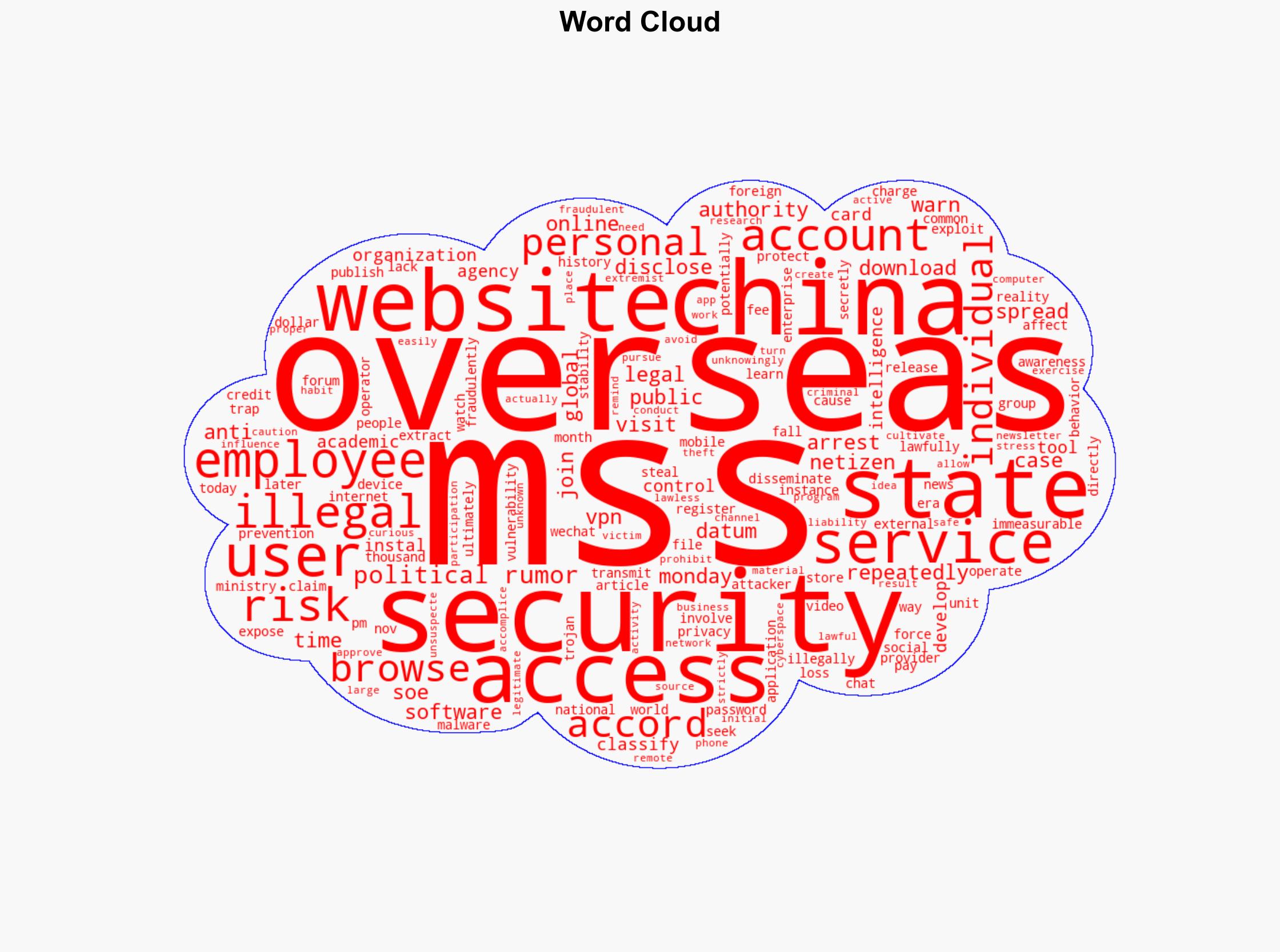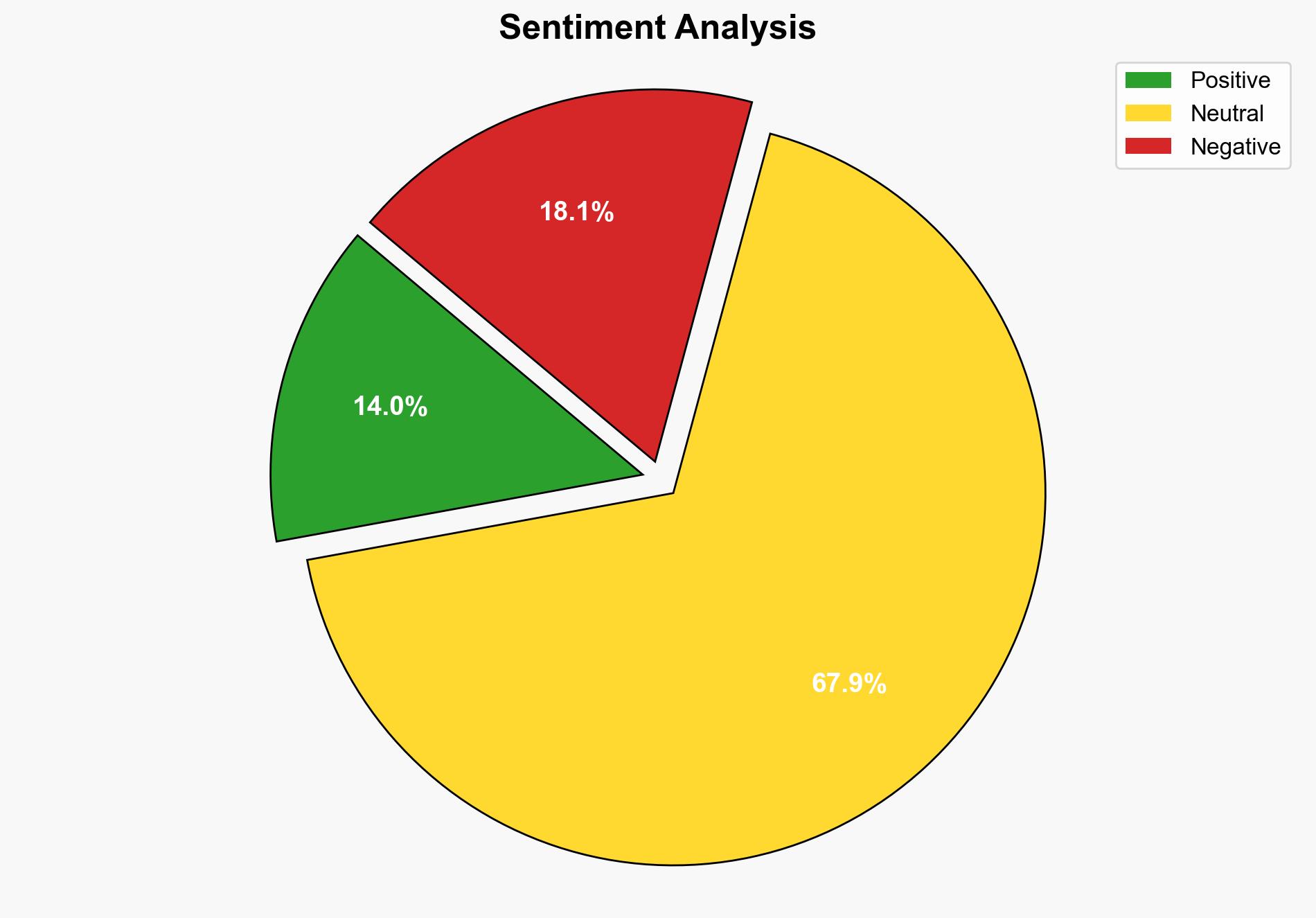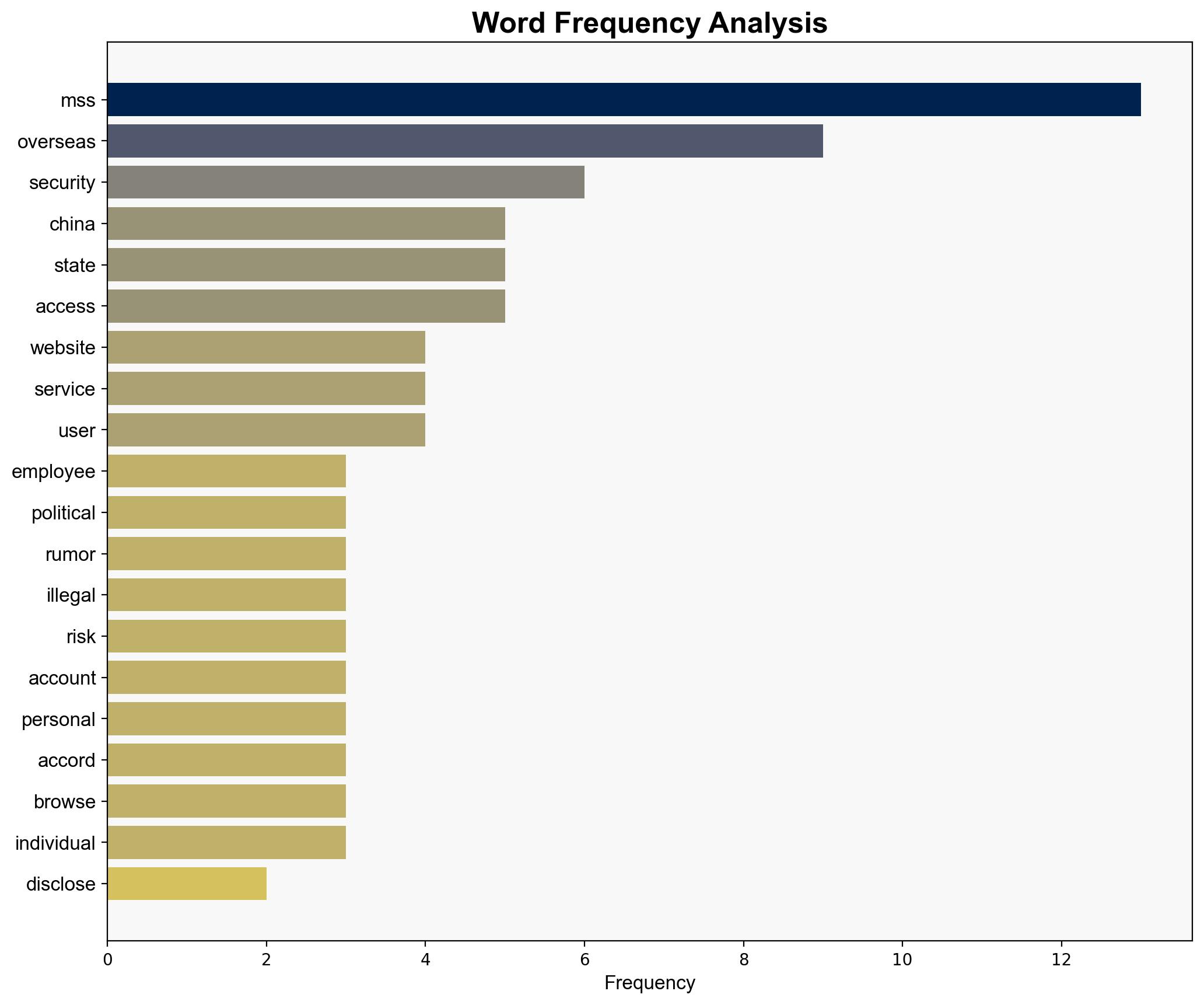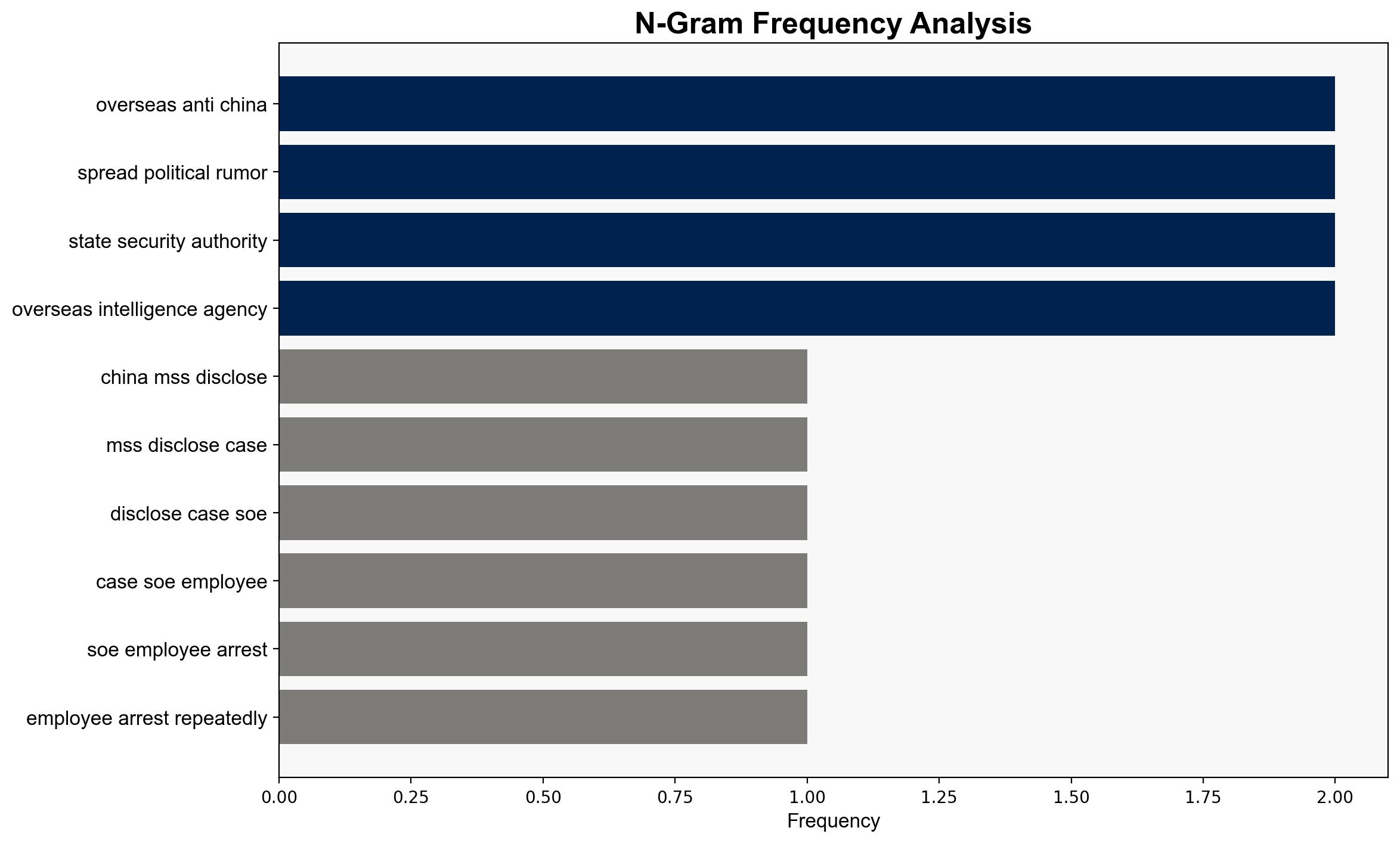China’s MSS discloses case of SOE employee arrested for repeatedly visiting overseas anti-China websites and spreading political rumors – Globalsecurity.org
Published on: 2025-11-11
AI-powered OSINT brief from verified open sources. Automated NLP signal extraction with human verification. See our Methodology and Why WorldWideWatchers.
Intelligence Report: China’s MSS discloses case of SOE employee arrested for repeatedly visiting overseas anti-China websites and spreading political rumors – Globalsecurity.org
1. BLUF (Bottom Line Up Front)
The disclosure by China’s Ministry of State Security (MSS) of an SOE employee’s arrest for accessing anti-China websites and spreading political rumors is likely a strategic move to deter similar behavior and reinforce state control over information. The most supported hypothesis is that this announcement serves as a warning to both domestic and international audiences about the consequences of perceived anti-state activities. Confidence Level: Moderate.
2. Competing Hypotheses
Hypothesis 1: The arrest and its disclosure are primarily intended as a domestic deterrent, signaling the Chinese government’s commitment to controlling information and preventing the spread of anti-state narratives.
Hypothesis 2: The disclosure is part of a broader international narrative to justify increased surveillance and control measures, portraying foreign entities as threats to national security.
Hypothesis 1 is more likely given China’s historical emphasis on internal stability and control over information. The narrative aligns with previous state actions to curb dissent and manage public perception.
3. Key Assumptions and Red Flags
Assumptions: The MSS’s disclosure accurately reflects the events and motivations behind the arrest. The information provided is not exaggerated for political purposes.
Red Flags: The timing of the disclosure could be strategically aligned with other political events or international negotiations. The emphasis on VPNs and cybersecurity threats may be overstated to justify increased surveillance.
Deception Indicators: The narrative may be constructed to shift blame onto foreign entities, thereby diverting attention from domestic issues.
4. Implications and Strategic Risks
The disclosure could lead to increased scrutiny and regulation of internet usage within China, potentially affecting both domestic and international businesses operating in the country. It may also escalate tensions with foreign governments accused of supporting anti-China activities. The emphasis on cybersecurity threats could justify further crackdowns on digital freedoms, impacting global perceptions of China’s commitment to international norms.
5. Recommendations and Outlook
- Actionable Steps: Monitor Chinese state media for further narratives on cybersecurity and foreign influence. Engage with international partners to assess the impact of China’s information control measures on global cybersecurity norms.
- Best Scenario: China uses the disclosure to enhance cybersecurity without significantly impacting international relations or domestic freedoms.
- Worst Scenario: The situation escalates into a broader crackdown on digital freedoms, leading to international condemnation and potential economic repercussions.
- Most-likely Scenario: China continues to tighten information control, with limited international pushback due to geopolitical considerations.
6. Key Individuals and Entities
No specific individuals are named in the disclosure. The Ministry of State Security (MSS) and the unnamed State-Owned Enterprise (SOE) are the primary entities involved.
7. Thematic Tags
National Security Threats, Information Control, Cybersecurity, China, State-Owned Enterprises
Structured Analytic Techniques Applied
- Cognitive Bias Stress Test: Expose and correct potential biases in assessments through red-teaming and structured challenge.
- Bayesian Scenario Modeling: Use probabilistic forecasting for conflict trajectories or escalation likelihood.
- Network Influence Mapping: Map influence relationships to assess actor impact.
- Narrative Pattern Analysis: Deconstruct and track propaganda or influence narratives.
Explore more:
National Security Threats Briefs ·
Daily Summary ·
Methodology





